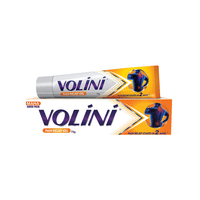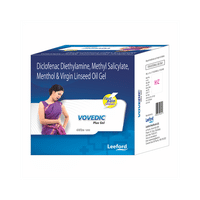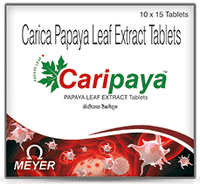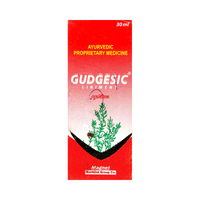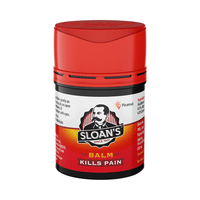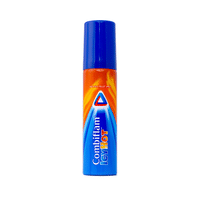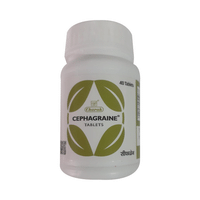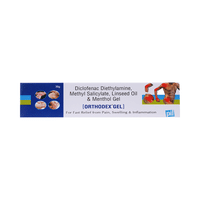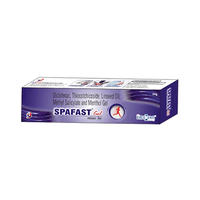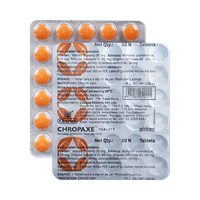Bioket LD Eye Drop
Rs.53.30for 1 bottle(s) (5 ml Ophthalmic Solution each)
food interaction for Bioket LD
alcohol interaction for Bioket LD
pregnancy interaction for Bioket LD
lactation interaction for Bioket LD
food
alcohol
pregnancy
lactation
No interaction found/established
No interaction found/established
Information regarding the use of Bioket LD Eye Drop during pregnancy is not available. Please consult your doctor.
CONSULT YOUR DOCTOR
Information regarding the use of Bioket LD Eye Drop during breastfeeding is not available. Please consult your doctor.
CONSULT YOUR DOCTOR
SALT INFORMATION FOR Bioket LD
Ketorolac(0.5% w/v)
Uses
Ketorolac is used for pain relief. It relieves pain in conditions like post-operative pain.
How it works
Ketorolac is a non-steroidal anti-inflammatory drugs (NSAID). It works by blocking the release of certain chemical messengers that cause pain and inflammation (redness and swelling). Ketorolac is a non-steroidal anti-inflammatory drugs (NSAID). It works by blocking the release of certain chemical messengers that cause pain and inflammation (redness and swelling).
Common side effects
Vomiting, Stomach pain/epigastric pain, Nausea, Indigestion, Diarrhea, Heartburn, Loss of appetite
Dexamethasone(0.01% w/v)
Uses
Dexamethasone is used for Inflammatory conditions and Autoimmune conditions.
How it works
Dexamethasone is a steroid which works by blocking the production of certain chemical messengers in the body that cause inflammation (redness and swelling) and allergies.
Common side effects
Increased appetite, Edema (swelling), Increased intraocular pressure, Decreased potassium level in blood, Tendon rupture, Weight gain, High blood pressure, Increased glucose level in blood, Menstrual disorder, Glaucoma, Slow heart rate, Tachycardia, Arrhythmia (irregular heartbeats), Enlarged heart, Circulatory shock, Fat embolism, Fainting, Thromboembolism, Thrombophlebitis, Vasculitis, Glucose intolerance, Cushing syndrome, Fat accumulation, Conjunctival hemorrhage, Vitreous detachment, Conjunctival hyperemia, Posterior subcapsular cataract, Acne, Allergic dermatitis, Hair loss, Stretch marks, Facial redness, Fragile skin, Skin hyperpigmentation, Hypertrichosis (excessive hair growth), Hypopigmentation, Fluid retention, Growth retardation in children, Excessive hair growth on face, Hypokalemic alkalosis, Negative nitrogen balance, Hiccup, Nausea, Vomiting, Abdominal pain, Pancreatic inflammation, Anal itching, Defective spermatogenesis, Kaposi sarcoma, Hepatomegaly (enlarged liver), Anaphylactic reaction, Sterile abscess, Postinjection flare, Emotional lability, Headache, Idiopathic intracranial hypertension, Increased intracranial pressure, Myasthenia (weakness and rapid fatigue of muscle), Neuropathy, Personality changes, Seizure, Vertigo, Amyotrophy, Bulging eyes, Pulmonary edema, Impaired wound healing, Aseptic necrosis, Muscle weakness, Osteoporosis, Pathologic fracture of long bones, Steroid myopathy, Vertebral compression fractures, Increased liver enzymes
SUBSTITUTES FOR Bioket LD
1 Substitutes
1 Substitutes
Sorted By
- Tolar-LX Eye Drops(5 ml Ophthalmic Solution in packet)Pharmtak Ophtalmics India Pvt LtdRs. 9.70/ml of Ophthalmic Solution
 Rs. 50save 9% more per ml of Ophthalmic Solution
Rs. 50save 9% more per ml of Ophthalmic Solution
Expert advice FOR Bioket LD
- You have been prescribed Ketorolac to relieve pain and inflammation.
- Take it with food or milk to prevent upset stomach.
- Take it as per the dose and duration prescribed by your doctor. Long term use may lead to serious complications such as stomach bleeding and kidney problems.
- It may cause dizziness, drowsiness or visual disturbances. Use caution while driving or doing anything that requires concentration.
- Avoid consuming alcohol while taking Ketorolac as it can cause excessive drowsiness and increase your risk of stomach problems.
- Inform your doctor if you have a history of heart disease or stroke.
- Your doctor may regularly monitor your kidney function, liver function and levels of blood components, if you are taking this medicine for long-term treatment.
Frequently asked questions FOR Bioket LD
Ketorolac
Q. Is Ketorolac an antibiotic or steroid?
No, Ketorolac is neither an antibiotic nor a steroid. It belongs to non-steroidal anti-inflammatory drugs (NSAIDs) group of medicines. It is used to relieve moderate to severe pain and inflammation.
Q. Is Ketorolac a good painkiller?
Ketorolac is effective in relieving pain and inflammation. It is used to provide relief from various sorts of pain, such as sprains, strains and other injuries. It is also helpful in the treatment of different types of arthritis and gout. Along with that, it can be used to reduce pain and inflammation which follows after a surgery.
Q. Is Ketorolac safe?
Ketorolac is safe if used in the dose and duration advised by your doctor. Take it exactly as directed and do not skip any dose. Follow your doctor's instructions carefully and let your doctor know if any of the side effects bother you.
Dexamethasone
Q. Is Dexamethasone a steroid?
Yes, Dexamethasone is a steroid medicine also known as glucocorticoids which occur naturally in the body and help to maintain health and wellbeing. Dexamethasone helps in treating various illnesses involving inflammation (redness, tenderness, heat and swelling) in the body.
Q. What is Dexamethasone used for?
Dexamethasone has anti-inflammatory and immunosuppressant properties. It is used to treat conditions like allergic conditions, anaphylaxis, asthma, rheumatoid arthritis and inflammatory skin diseases. It also aids in treating autoimmune diseases (these diseases happen when your body’s immune system attacks the body itself and causes damage) and certain eye disorders. Additionally, it is used to treat cancer and nephrotic syndrome when used with other medicines.
Q. How is Dexamethasone administered?
Dexamethasone should be administered by a doctor or under the supervision of a healthcare professional and should not be self-administered. Usually, it is given into a muscle (intramuscular), joint (intra-articular), directly into a vein (direct intravenous), infusion or into the area being treated (soft tissue infiltration). The dose will be decided by your doctor based on the condition you are being treated for as well as your body weight. Follow your doctor’s instructions carefully to get the maximum benefit from Dexamethasone.













